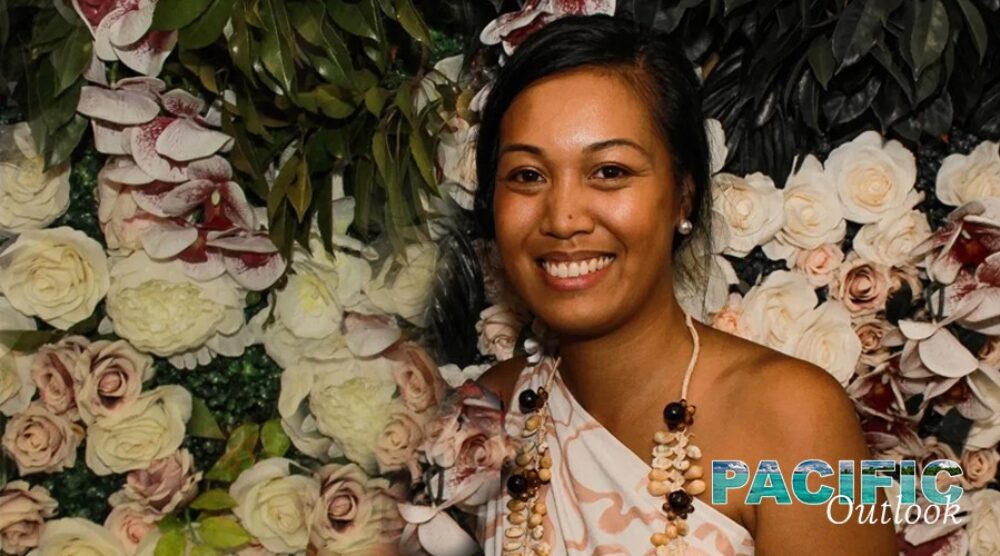We often hear that youth are the leaders of tomorrow. However, the decisions made today by world leaders will severely impact the future of young people like myself, and it is vital that youth are part of the dialogue now when we look to address the needs of the Pacific and its people.
Pacific Climate Warrior, Brianna Fruean, shared a powerful analogy last year at COP25. This analogy was centred around the special structure of our canoes – the key to finding solutions for a just future. In a canoe, our elders sit at the rear equipped with generational knowledge. This could also be our world leaders, government officials and current decision makers that hold the wisdom to steer our canoes forward. Seated at the front of the canoe, however, are our young people filled with passion, heart, and energy to power it forward. Without youth, we would struggle to reach our desired destinations and solutions fast enough, particularly now in this rapidly evolving world.
I am privileged to call both Solomon Islands and Federated States of Micronesia (FSM) home. Although the Pacific is so diverse, we share many common values that unite our Oceanic region. Engrained in our cultures is the act of serving and respecting our elders. Furthermore, when it comes to formal discussions, the role of youth is not always perceived as valuable as it is instilled in us from a young age to be seen, but not heard.
Our strong cultural values sometimes hinder our participation – missing out on seats at the table and more so the microphone for our voices to be heard. Despite this, in recent years youth in the Pacific have been stepping up: creating our own tables, forging our way to innovatively address social injustices and reinforcing the case that we as young people can and should be involved in decision making processes.
This is not to say that our elders that hold generational wisdom are not needed. If we are to progress further, intergenerational learning and dialogue is essential. At the centre of this would be the bringing together of the wisdom, experience and skills of different people and different generations as a collective. Equally as important as intergenerational dialogue is Pacific representation. As a young Chuukese (FSM) woman that was raised in Solomon Islands, I do not see a substantial number of people that look like myself or speak my languages seated at tables of decision making.
Over the years we have started to see Pacific people pop up occasionally in positions contributing to developing the Pacific and its people – but one voice for the largest oceanic region of the world is not good enough. One Pacific face to tick a diversity box is not good enough. Consulting youth and Pacific communities once a project or solution has been formed is not good enough. The Pacific Ocean is home to the peoples of 20,000 different islands and atolls with over 1,200 recorded indigenous languages. Honouring the words of the late Dr Teresia Teaiwa, it is important ‘to remind people of the complexity [of the Pacific] and not let them try to paint us with a single brush stroke’. The notion that Pacific people are mere victims and require others to ‘be our voice’ is absurd. There are many voices yet to be heard but simply have not been given the opportunity or platform to share their views and stories.
I was fortunate to share my views sitting as a panelist at the recent Griffith Asia Institute, Perspectives: Asia Panel event entitled “You can’t paint the Pacific with just one brush”. During the webinar, the following question was put forward – What does a vibrant, prosperous, and secure Pacific look like in the future and how can that be achieved?
Being able to sit and reflect on this question in more detail – I believe a vibrant, prosperous, and secure Pacific is one that is led by the Pacific. A vibrant future where Pacific people reclaim their narratives and can actively design and lead their own innovative solutions. A prosperous future where the voices of Pacific youth are empowered and included as valuable resources. A secure future where intergenerational learning and dialogue is the norm and the region’s diversity is wielded and embodied as a strength.
For neighbouring countries like Australia, it would be remiss to say that it is not part of the Pacific family. Being the big brother of the region, Australia shares the responsibilities and challenges of supporting the prosperity of Oceania. Whilst the country has had a long working relationship with the Pacific, there is still a long way to go. Australia needs to be listening more to its neighbours to build sustainable relationships because, for too long, dialogue has been centred around what Australia can do ‘for’ the Pacific rather than ‘with’ the Pacific.
AUTHOR
Iree Grace Chow is an active youth member of the Pacific Islands community in Meanjin (Brisbane), Australia. She currently sits as the President of the Pasifika Women’s Alliance (PWA) and also volunteers as an executive committee member of the Solomon Islands Brisbane Community and in the Pacific Climate Warriors Brisbane team.








